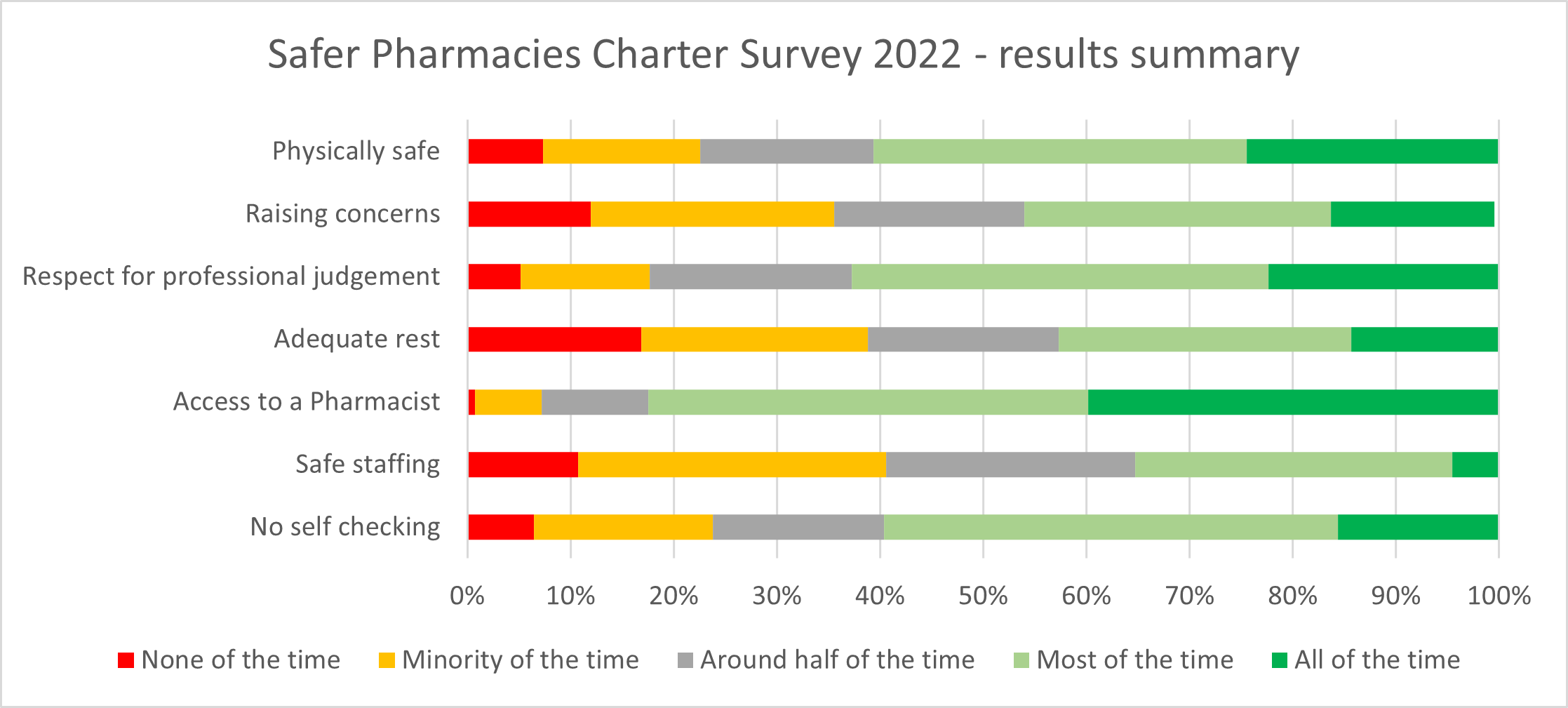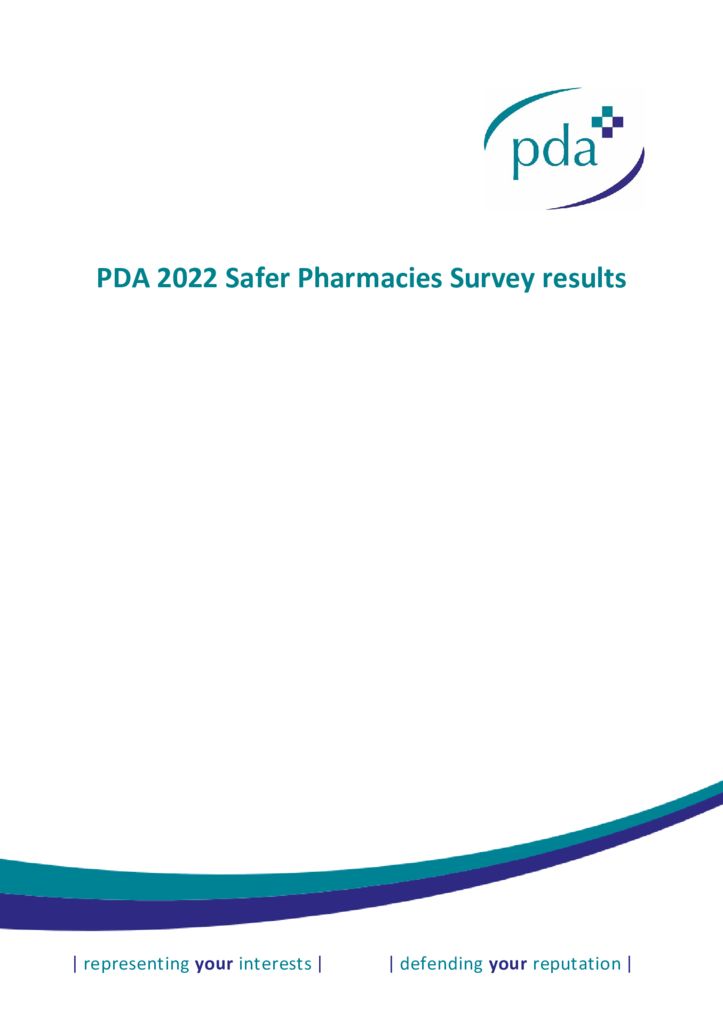Consistently, the PDA is supporting members who experience challenging conditions and less than optimal physical work environments, which not only impacts patient safety but pharmacists’ physical and mental health and wellbeing. To help address these issues and enable them to take a proactive approach to support its members, the PDA conducts an annual survey of pharmacists based on the seven commitments in its Safer Pharmacies Charter.
The charter defines basic standards to ensure safe practice wherever pharmacists work. These are;
- No self-checking
- Safe staffing
- Access to a pharmacist
- Adequate rest
- Respect for professional judgement
- Raising concerns
- Physically safe
With the benefit of having several years of feedback from members around the Safer Pharmacies Charter, in addition to handling around 5,000 calls to the PDA’s Member Support Centre each year, the PDA can comment from an informed position on the state of safe practice environments for pharmacists, and where risk to patient safety occurs.
The member survey conducted in 2022 saw an increase in participation, in line with the PDA’s growing membership numbers.
Overview

By design, the charter commitments are basic safety factors that pharmacy employers should ensure are in place all of the time.
Areas of main concern raised by PDA members include self-checking, having appropriate levels of staffing, and having the opportunity to take adequate rest breaks. All of which are vital elements to support the safe operation of the pharmacy and optimal patient care.
The pharmacy regulators are the GPhC and PSNI, each of whom regulate pharmacy owners as part of their purpose to make sure patients receive safe and effective pharmacy care and have trust in pharmacy. These regulators allow such conditions to exist, making it harder for individual employed or locum pharmacists to challenge the employers who control whether the charter commitments are met in their pharmacies. If each of these basic conditions is not present it should also be of significant concern to the national NHS organisations across the UK, and to the Ministers that are responsible for their performance.
Combining the survey results with other methods in which the PDA receives information from 36,000 members, the PDA believes these conditions are a major contributory factor to the number of experienced pharmacists who are reducing their working time, becoming locums rather than employees, or leaving practise entirely. Government, employers, and others concerned with workforce planning should prioritise getting these basic safety standards in place in every pharmacy, all the time, if they want pharmacy to be adequately resourced in future. Read more information about the charter and results of the 2022 survey in more detail here.
PDA’s 2022 Safer Pharmacies Survey results
Learn more
- Safer Pharmacies Charter
- PDA encourages pharmacists to take part in the 2022 Safer Pharmacies Survey
- PDA launches Safer Pharmacies Charter commitment videos
Not yet a PDA member?
If you have not yet joined the PDA, we encourage you to join today and ask your colleagues to do the same.
Membership is FREE to pharmacy students, trainee pharmacists, and for the first three months of being newly qualified.
Read about our key member benefits here.
